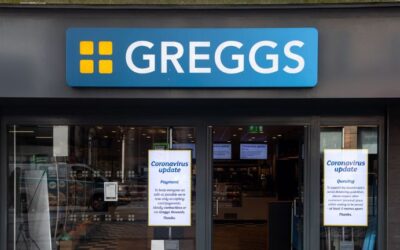Japan’s new prime minister, Yoshihide Suga, is wasting no time.
Mr Suga has already made clear that he intends to continue with the three ‘arrows’, as they are called, of his predecessor Shinzo Abe’s economic blueprint of Abenomics – an aggressive monetary policy, a flexible fiscal policy and a growth strategy including structural reform.
With the Bank of Japan already having implemented a main policy rate of -0.1% and the Japanese government set to continue running budget deficits as far into the future as the eye can see, that means structural reform is likely to take up most of the slack.
Image: Yoshihide Suga became Japan’s new prime minister in mid-September
Today came an example of the kind of thing Mr Suga may have in mind.
Mobile phone fees have long been a bugbear of the new prime minister.
Advertisement
Two years ago, as chief cabinet secretary, he demanded mobile phone operators cut their charges by as much as 40%. And, while some of the carriers did indeed reduce fees afterwards, Japanese mobile phone charges remain higher than in many other countries.
A survey by the Japanese communications ministry published in July this year revealed that heavy data users in Tokyo pay significantly more than users in five comparable connected cities – New York, London, Paris, Seoul and Dusseldorf.
More from Japan
London’s mobile charges were the cheapest of the six.
It prompted further criticism from Mr Suga. During his first news conference after becoming prime minister, he hit out at the three main players, Docomo, KDDI and Softbank.
Image: Japan’s mobile phone charges remain high – partly through a lack of competition
He said: “They continue to post operating profit [margins] of 20% with some of the highest fees in the world.”
Mr Suga immediately ordered Ryota Takeda, his internal affairs and communications minister, to tackle the issue. Mr Takeda promptly warned the sector that he expected a cut of more than 10% in mobile charges.
Those cuts may come a step closer following news on Tuesday of what would be the country’s biggest corporate takeover.
Nippon Telegraph and Telecom (NTT), which can be seen as Japan’s equivalent of a company like BT in the UK or Deutsche Telekom in Germany, spun off its mobile phone arm, Docomo, as long ago as 1992.
Today, though, it said it wanted to buy the remaining 34% of the carrier that it does not already own. The deal would value Docomo at 4.25 trillion yen (£31.3bn).
Because the Japanese government still owns one-third of NTT – it began privatising the company a year after Margaret Thatcher launched the privatisation of BT in 1984 – this would put it in a strong position to lobby for cuts to mobile rates.
This is clearly what investors expect: shares of Docomo’s main rivals, KDDI and Softbank, both fell sharply on news of the takeover and on concerns that a price war may be looming.
Jun Sawada, NTT’s chief executive, insisted that government pressure for price cuts had not been a factor – but confirmed they were likely.
Image: Jun Sawada is NTT’s chief executive. Pic: NTT
He said: “Doing this will make Docomo stronger and its financial foundation stronger, which would create room to lower rates. We will take full advantage of our group’s resources to enhance our competitiveness.”
Mr Sawada said that Docomo would also be a more nimble business under his company’s full control.
He added: “We can speed up decision making.”
While Docomo may be in a position to implement greater cuts in mobile charges as part of NTT, what will still be missing in Japan is proper competition.
In the UK, prices are arguably kept low by tough competition involving four major players – Vodafone, EE, O2 and 3UK – as well as a host of ‘virtual mobile network operators’ (MVNOs), including Virgin Mobile, Tesco Mobile and Sky Mobile.
Similarly, in France, there are four major operators – Orange, SFR, Free and Bouygues Telecom – as well as numerous MVNOs including Coliolis, Prixtel and La Poste Mobile.
By contrast, in Japan, the three main players have 90% of the market between them and Docomo, which currently has 80 million subscribers, is the biggest.
The e-commerce giant Rakuten, which previously operated as an MVNO, is now building out its own 5G network and launched in three cities in April this year – Tokyo, Nagoya and Osaka – but it remains some way off from becoming a serious competitor to the big three.
The takeover marks something of a comedown for Docomo. At the turn of the century, during the first dot-com and tech boom, it was briefly worth almost $350bn – making it Japan’s biggest company by stock market valuation and one of the five biggest companies in the world.
Image: NTT’s work has included developing robotics to help control multiple electronic devices
Then the bubble burst and it swiftly lost one-third of its value. More recently it has become smaller still after a vainglorious overseas expansion – during which it overpaid for a 16% stake in the US mobile firm AT&T Wireless – backfired and it was forced to retrench.
The NTT takeover of Docomo may also set a trend for another round of corporate restructuring that could be construed as a key aim of Abenomics.
Japanese business is notable for what is known as ‘keiretsu’ – a complex system of business networks full of companies with cross shareholdings, alliances and close relationships.
Mr Abe did his best to dismantle this system, which was blamed for thwarting productivity improvements and stifling competition, but he only got so far. Many so-called ‘parent-child’ shareholder arrangements, such as NTT’s ownership of 66% of Docomo, persist.
This deal could hasten their elimination – to the benefit of consumers and shareholders alike.









